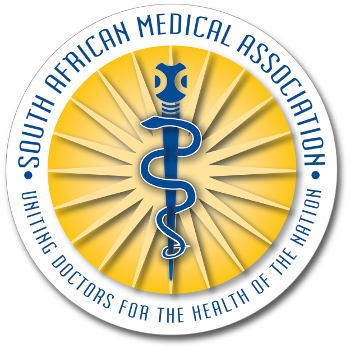Section 59 Investigation raises serious questions which must be dealt with - SAMA
The Interim Report on the Section 59 Inquiry into allegations of racial discrimination by medical schemes against Black healthcare providers raises serious questions about racism among medical schemes, and requires urgent, honest, and appropriate action by the medical schemes, and the authorities which govern them. The South African Medical Association (SAMA) says the findings must now spearhead remedies for harmful administration processes by the schemes and administrators, and the regulatory framework under which these practices are allowed to continue.
According to the Interim Report, the investigation focused particularly on the fraud, waste and abuse (FWA) systems “… by the three main administrators – Discovery, Medscheme and GEMS.”
The Interim Report notes, “After considering all the evidence and responses, we find that between 2012 and 2019 Black practitioners were more likely to be found to have committed FWA than their Non-Black (White) counterparts, by Discovery, Medscheme and GEMS. This means, for the reasons provided in this interim Report, there was unfair racial discrimination.”
SAMA says the findings are unacceptable, shocking and disturbing, and require immediate attention by the implicated schemes.
“Not only is it clear that Black doctors are discriminated against, but it is equally clear that the regulatory environment which allows this type of action to continue is still out of step with the realities of South Africa," says Dr Mvuyisi Mzukwa, Vice-Chairperson of SAMA.
Dr Mzukwa says SAMA’s view is that the unfair administrative processes followed by the medical schemes must now become the focus for investigation.
“We concur with the investigators that these findings are degrading, humiliating and distressing and there can be no justification whatsoever for these actions. It is now incumbent upon the authorities to take these findings further by investigating the regulatory framework which has allowed these practices to not only occur, but to flourish,” says Dr Mzukwa.
He says it is clear that the problems with this conduct by the medical schemes arises from an imbalance in the power structure between the big, well-financed administrators, and medical practitioners. This, he says, is evident where the report finds the interpretation of Section 59 (2) and (3) vague and confusing. These two sections are used by medical schemes to withhold payments and force providers to sign acknowledgement of debt in order to continue to be paid.
“The report refers to the above practice as blackmail which erases any doubt that the schemes must immediately review and rewrite their FWA processes; it goes without saying the current processes cannot continue. The Council for Medical Schemes and the Health Professions Council of South Africa have some serious introspection in respect of their own regulations which have allowed these schemes to operate within a legal framework they endorse. These regulations lie at the heart of the problem the Section 59 Inquiry has identified,” he says.
Critically, Dr Mzukwa, notes the report criticises the HPCSA and the CMSA for dereliction of their duty in handling complaints by providers. He says it indicates that both associations must reorganise their regulations to such a degree that they offer better clarity to avoid abuses of the regulations by people seeking to use them to their advantage – and the disadvantage of providers.
Dr Mzukwa says SAMA is appalled that Black doctors have been racially profiled in the way outlined in the report and says the Association will insist on not only a review but an overhaul of current scheme guidelines to ensure these are fair and equitable for all medical practitioners.
“We applaud the Section 59 inquiry for highlighting this most inhumane practice of racial profiling by the schemes and administrators. While the process of dealing with this is unfolding, we are duty bound to ensure a parallel process gets underway to clean up the harmful and often debilitating administrative processes of these schemes. Unfortunately, unless this root problem is addressed properly, this type of conduct will continue, and more and more Black doctors will face the same issues as their counterparts who testified at the inquiry’s hearings,” concludes Dr Mzukwa.
[ENDS]
Notes to Editors
About SAMA
The South African Medical Association was formally constituted on 21 May 1998 as a unification of a variety of doctors’ groups that had represented a diversity of interests. SAMA is a non-statutory, professional association for public, and private sector medical practitioners. SAMA is a voluntary membership association, existing to serve the best interests and needs of its members in any and all healthcare related matters.
Contact:
Head of PR & Communications
Dr Simonia Magardie
082 905 8505
Email: simoniam@samedical.org
Spokesperson 1
Vice-Chairperson: SAMA
Dr M Mzukwa
076 382 8152
Email: mzukwam@gmail.com
Spokesperson 2
Chairperson: SAMA
Dr A Coetzee
082 379 8118
Email: dr.coetzee@worldonline.co.za
